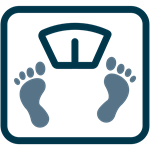As many as 80% of Americans will experience back pain at some time during their lives. Back pain is even known as a leading cause of disability. Fortunately, by following a few simple tips, you can prevent back pain from slowing you down.

Use proper technique when lifting
Lifting heavy items can cause back injuries and stress if you aren’t using proper lifting techniques. Be sure to start close to the object, engage your core muscles, and lift with your legs by bending at the knees instead of bending your back. When holding the object, keep it close to your chest and avoid twisting your torso. Ask for help if you cannot safely lift the object by yourself.

Engage in regular, low-impact exercises
Inactivity can contribute to back pain and weaken your muscles, so create a habit of engaging in low-impact aerobic activities, such as walking, swimming, and utilizing stationary exercise machines. Consistency (and good form) will help you improve your muscle strength and mobility to better support the spine and reduce stiffness.

Maintain a healthy weight
Excess weight puts pressure on your spine and strains your back. Achieving and maintaining a healthy weight will help reduce back pain by taking pressure off your joints, discs, and vertebrae.

Don’t smoke
In addition to increasing your risk of developing a heart/lung disease and cancer, smoking increases your risk of back pain and diseases that impact bone health, like osteoporosis. Smoking also restricts the flow of nutrient-rich blood to the structures of the lower back needed for musculoskeletal health.

Practice good posture
Protect your spine health and reduce excess stress on your back by practicing good posture. Stand tall, sit with your knees and hips level, and avoid slouching to prevent back pain from sneaking up on you.

Support your back when sitting
Use a chair with lumbar support to protect your back, especially if your work requires you to sit for long periods of time. You can also place a pillow or rolled-up towel behind the small of your back for support.

Take stretch breaks
Take stretch breaks at work or after extended periods of being sedentary to avoid weakening your back muscles and mobility. Make sure to frequently change positions, stand up or take a walk when you’ve been sitting still for too long.

Relieve stress to ease tension
Even minor stressors can build tension over time and impact your lower back. Find stress-reducing activities that work for you, such as yoga or meditation, to release tension that may be causing persistent back pain.

Support your back at night
If you experience back pain while sleeping, try modifying your position. Your mattress might also be the culprit. Sleeping on the wrong mattress can cause back pain or make it worse. Prioritize finding a mattress that supports good sleeping posture—one that helps keep your spine in alignment.

Listen to your body
Pay attention to your body’s limits when you start experiencing pain. Examine your daily activities to figure out where you can better support your back or lighten your load to avoid unnecessary strain. If pain persists for more than two weeks, even after modifying your routines, see a doctor.